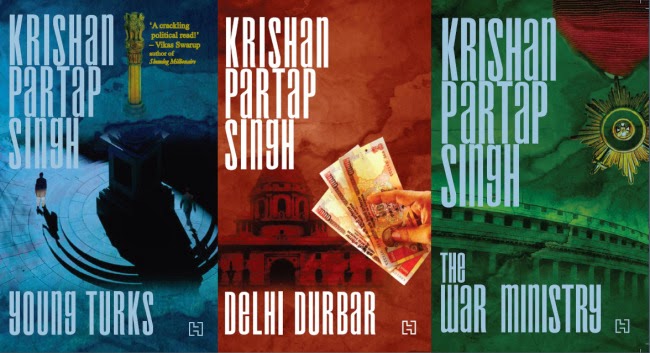Last night I
visited the website of the Aam Aadmi Party (AAP) and for the first time in my
life applied for membership to a political party. Considering I’ve spent the
last decade totally consumed with observing, discussing, researching, and
writing political novels about India’s incomparable democratic drama, it is not
a step I took lightly. Every General Election is important but the upcoming one
is likely to be especially so. No matter the result it will bring elemental
change to India’s polity that will reset the battle lines for many an election
to come. The current campaign is about more than individual personalities, it
is about voter anger against the establishment of such ferocity that it could
cause the complete recasting of the polity. The old rules no longer apply,
political leaders will have to either adapt or depart.
India’s two national parties
must bear the brunt of the blame. On the surface the Congress and BJP may
appear separated by the gulf of ideology, but in actual fact they mirror each
other from across the political divide, they are in fact conjoined twins. If
one party raises the 2002 riots in Gujarat, the other brings up the 1984 Delhi
riots in response. If one speaks of the Gandhi family son-in-law’s alleged
venality, the other threateningly whispers of Vajpayee’s foster son-in-law. If
one follows the Sangh Parivar’s diktat without a word of protest, the other
readily surrenders all autonomy at the feet of the Gandhi family. Both rail
against the media when confronted by their own varied shortcomings, and they
both go deaf and dumb at the mere mention of the name of India’s richest man.
To choose between the BJP and the Congress is a false choice, India deserves
better than the politics of division and opportunistic backroom deals. It is
time for a third way.
I now believe the Aam Aadmi
Party could be on its way to becoming India’s third national party. Having
written three novels on precisely this very subject, I have found it impossible
to witness this exciting new development from a studious distance. Arvind
Kejriwal may not look the part of a maverick, and like everybody else I too
initially underestimated his determination, but the Delhi election campaign
changed everything. He and his motley crew campaigned tirelessly to make
believers out of us Dilliwallahs and long voter lines into the night were proof
that something special was taking place. Voters love an underdog.
Joining the AAP was the
furthest from my mind till an unexpectedly electric moment in Arvind Kejriwal’s
speech in the Delhi Assembly during the discussion of his government’s trust vote
on January 2nd when he broadened the definition of who an Aam Aadmi was to include everyone who possessed a moral outlook of honesty and truth
regardless of what their bank balance or background was. In one stroke he had
made it possible for everyone to conceivably consider themselves within the
rubric of Aam Aadmi, even the middle class. For the first time since Vajpayee left the public
stage I found myself unconsciously nodding along as I listened to a political
leader speak. The message was unambiguously inclusive, unifying and optimistic,
my very favourite words. It was not just a Chief Minister delineating his
governing agenda but also a leader with national ambitions for his party using
the media spotlight to address the country. We got the message loud and
clear.
The first days of governance
in Delhi have been tumultuous, but governance is never easy and the
inexperienced ministers will take time to adjust to the shock of being
catapulted into office. They over-promised in the campaign but moved quickly to
meet the most high profile of the promises. Accusations of fiscal
irresponsibility and populism are flying thick and fast but they have marginal
electoral relevance. Issues of execution could arise but Kejriwal’s IRS
experience is showing in the way he’s marshalled the bureaucracy so far to come
up with crafty solutions to the water and electricity campaign pledges.
I worry about the
one-size-fits-all attitude of AAP leaders who see referenda or other forms of
direct democracy as the instant solution to even the most intractable issues;
an example being the recent furore on Kashmir which was an eminently avoidable
misstep by Prashant Bhushan. Kejriwal must be prepared to make tough decisions
which may be correct but yet unpopular. To govern effectively a leader must
inform, persuade and show the way.
Clearly I don’t agree with
every last thing AAP has proposed, but nor is that necessary because I’m wholly
on board with their core agenda of fighting corruption in all its forms,
empowering the common man, and reining in crony capitalism with a more
progressive path to economic growth. The legacy of the age of loot and
incompetence during the hideously technocratic premiership of Sardar Manmohan
Singh must be rolled back. I doubt Narendra Modi and his billionaire
cheerleaders have any such house-cleaning in mind.
